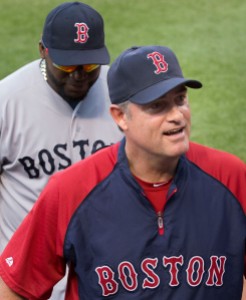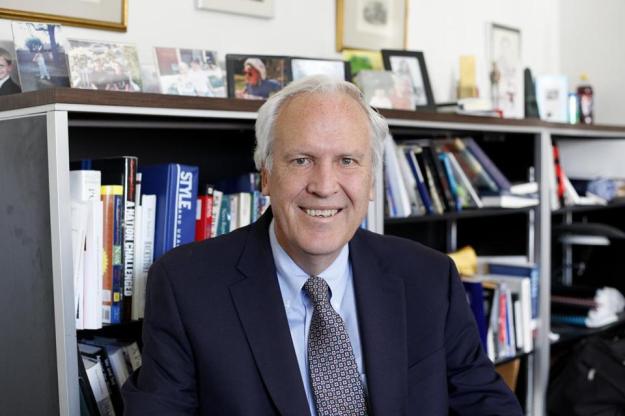Update: The Globe sent the following statement at 2:21 p.m.:
BGMP [Boston Globe Media Partners] uses a third-party service for comment moderation called ICUC. Readers post comments and also flag inappropriate ones for review. If a comment flagged for review doesn’t conform to our guidelines, ICUC will block it.
These comments were removed because they included personal attacks on an individual, which is a violation of our comment guidelines. While our guidelines allow for more leniency against public figures, attacks against a person’s morality (for example, the use of “Liar-in-Chief”) are against our standards.
Based on the “Liar-in-Chief” example, it sounds like the problem was related to criticism of President Trump rather than of John Henry. I’ve done some editing below to reflect the tone of the statement.
Original item (with edits): The Red Sox’ visit to the White House, scheduled for later today, has put The Boston Globe in an awkward position: Globe publisher John Henry is also the principal owner of the Red Sox, and a number of observers have called on the Sox to cancel given that manager Alex Cora, who is Puerto Rican, and the team’s players of color are all taking a pass.
The controversy has spilled over into the comments on the Globe’s website. If you take a look at any of the stories about the visit (like this one), you’ll find multiple examples of comments that have been blocked. We may assume that many of those comments contained racist content. At least three, though, were harshly critical of Henry but otherwise inoffensive.
Two were sent to me by “Sam the Man,” an anonymous commenter who used what appeared to be his real name in communicating with me. I grabbed the third comment myself — it struck me as similar to the first two, and I was wondering whether it would be blocked. It was. Here they are:
• From “Sam the Man,” Sunday, 5:17 p.m.: “True that, but I have less respect now for Henry, who has set up a divisive situation by agreeing in that there is now a racial division on the team. Henry should back off, and if he doesn’t he’s no better than Trump butt-kisser Kraft.
“Henry should call the whole thing off. To go is to play into Trump’s hands as well as weaken the team.
“Alex, you are a true leader.”
• Also from “Sam the Man”: “John Henry: Call off this trip to visit the Liar-in-Chief. The trip will be manipulated by Trump, will hurt racial harmony on your team, and will send a bad message to our citizens. Be a leader, support your manager.”
• From “Thoughtful1,” Monday, 4:54 p.m.: “Note to John Henry: actions speak louder than words. Your newspaper condemns Trump’s divisive policies but now you are going to kiss his ring. You condemned the alleged racism of Tom Yawkey but where you have a chance to make a statement about the bigoted rhetoric of the President of the United States, you have chosen to back off.”
Globe vice president and spokeswoman Jane Bowman sent me this statement earlier this morning:
We value our subscribers who further discussions about stories and topics by posting comments representing a variety of viewpoints. The Globe moderates comments in order to allow our well-informed community of readers to hold civil discussions that move ideas forward in a productive way.
It’s notable that, on Monday, the Globe published a column by Adrian Walker that was quite tough on Sox management. Walker interviewed Sox chief executive Sam Kennedy and pointed out that Henry owns both the Globe and the Red Sox. Walker concluded his column with this:
Henry once spoke of being “haunted” by the legacy left by Yawkey, the last owner to bring a black player to his team. That statement came in the course of announcing the team’s correct and unpopular decision to have Yawkey’s name removed from the home of Fenway Park.
Now the “white” Sox are going to the White House, while their manager and most of their teammates of color sit home in silent but unmistakable protest.
I think someday that will prove haunting too.
I don’t think the Globe’s comments (or those of most other newspapers) are especially well managed. I’ve long argued that if you’re not going to screen every comment before it goes up, then you shouldn’t have comments at all. I think newspapers ought to consider a real-names policy, too.
But if you’re going to have them, you certainly need to take steps to ensure that non-crazy comments that are critical of the paper’s owner don’t get taken down — even if that’s not actually the reason they were deleted.
Talk about this post on Facebook.







